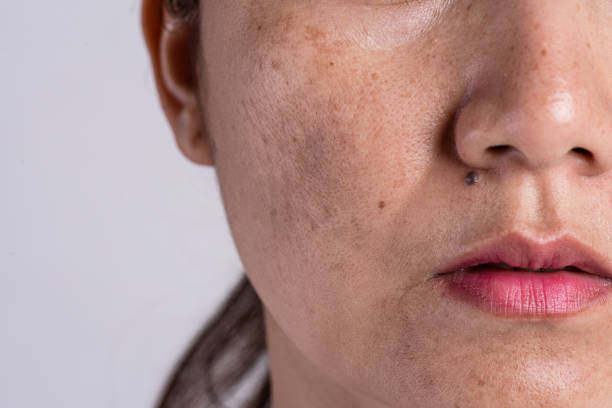Our Co-founder, Jagriti Choudhary, has worked and researched in depth on the topic of pigmentation.
Pigmentation, also known as hyperpigmentation, is a common skin concern that affects people of all ages and skin types. It is characterized by the appearance of dark spots, patches, or uneven skin tone on the face, hands, and other areas of the body. The condition can be caused by a variety of factors, including sun exposure, hormonal changes, genetics, and certain skincare products. In this article, we will explore the causes of pigmentation and the treatment options available.
Causes of Pigmentation
Sun Exposure: One of the most common causes of pigmentation is sun exposure. Ultraviolet (UV) rays from the sun can stimulate the production of melanin, the pigment that gives color to the skin. This can lead to the formation of dark spots, freckles, and age spots.
Hormonal Changes: Hormonal changes, such as those that occur during pregnancy or menopause, can also cause pigmentation. Melasma, also known as "pregnancy mask," is a common form of pigmentation that occurs during pregnancy and is caused by hormonal fluctuations.
Genetics: Pigmentation can also be inherited, with certain individuals being more prone to developing dark spots and patches.
Skincare Products: Certain skincare products, such as those that contain hydroquinone, can also cause pigmentation.
Treatment Options
Topical Treatments: Topical treatments, such as creams and serums, can help to lighten and even out the skin tone. These products may contain ingredients such as hydroquinone, kojic acid, or vitamin C, which can help to inhibit the production of melanin.
Chemical Peels: Chemical peels can help to remove the top layer of skin, revealing brighter, more even-toned skin underneath. These peels may contain ingredients such as glycolic acid or salicylic acid, which can help to lighten pigmentation.
Laser Therapy: Laser therapy, such as intense pulsed light (IPL) or fractional laser resurfacing, can help to reduce the appearance of pigmentation by targeting the melanin in the skin.
Prevention
To prevent pigmentation, it is important to protect the skin from sun exposure. This can be done by wearing sunscreen with at least SPF 30 every day, and wearing protective clothing, such as long-sleeved shirts and wide-brimmed hats. It's also important to avoid skincare products that can cause pigmentation and to follow a healthy diet with foods rich in vitamins C and E.
In conclusion, pigmentation is a common skin concern that can be caused by a variety of factors, including sun exposure, hormonal changes, genetics, and certain skincare products. With the right treatment and prevention methods, it is possible to reduce the appearance of pigmentation and achieve a more even-toned, youthful-looking skin.

